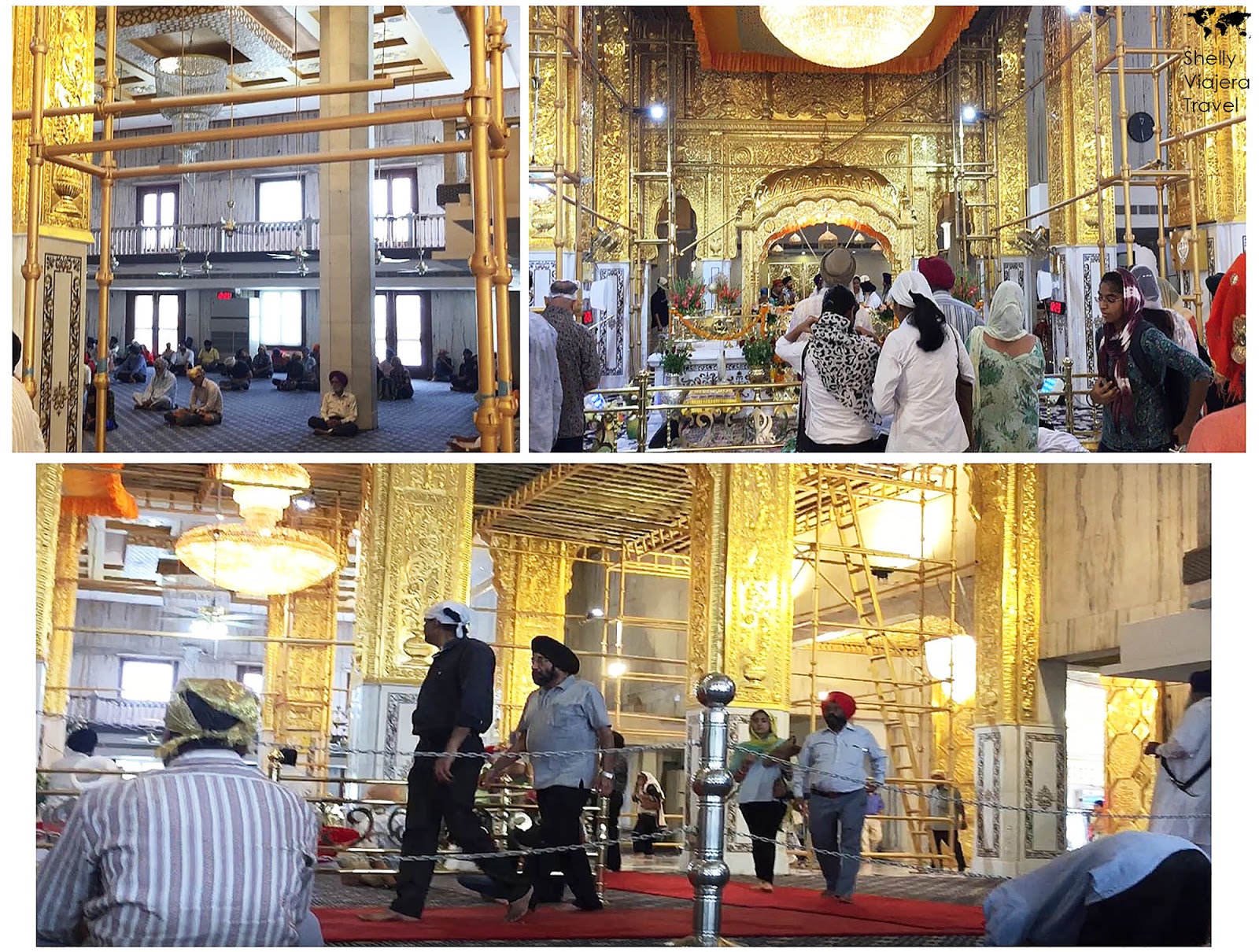As a developing country in the world with 21.9% of its population below the national poverty line (2011 statistics released by Asian Development Bank), India needs a lot of hands. While it's a beautiful country with amazing architecture, colorful culture, and very friendly people, the negative impressions attached to poverty have been letting some travelers think twice of going there, jumping to a conclusion that it’s unsafe to travel.
On my second day in India, I visited Gurudwara Bangla Sahib, one of New Delhi's largest and known gurudwaras, the place of worship for the Sikhs. While most Indians are Hindus or Muslims, the Sikhs are considered minority only at 1.72% but because of India's big population, they still count to around 21 million people.
Also read: When in India: Thoughts on Solo Female Backpacking in India
Similar to a temple, mosque, or church, Gurudwara Bangla Sahib has an open space for prayers and teachings. People usually sit on the carpeted floor while listening to the religious chants recited in Hindi.
On one side, there’s a holy pond called the sarovar. It’s found in almost all gurudwaras as it's a dedicated area to let the people bathe and cleanse themselves, a practice that's also part of Sikhism.
I passed by a group of people sitting outside the langar hall. Soon I realized they were the next batch of people to be provided with free food. At the end of the hall is an alley that led me to the big kitchen where I began the volunteer work.
First, I helped in kneading the naan. Since naan is one of the cheapest food that could be massively produced, it's always served in the gurudwara. Also, it's considered India's staple food that basically becomes leavened flatbread when baked.
The locals were very accommodating in helping and teaching me about everything since it was obviously my first time. It took a while to get the hang of kneading the dough with a wooden rolling pin while spreading flour to avoid sticking, but knowing it was for a good cause, the sweat, heat, and squatting on the floor were all worth it.
Next, I helped in cooking the naan. Basically, I used an iron rod to flip at least 10 (or more) naans on the pan, making sure no side got burned. Afterward, I tossed the cooked ones in a big basket. It wasn’t that hard either, though the only challenge was the heat coming from the big open-air oven.
After working for a few hours in the kitchen, I finally saw through the glass window the rows of people eating the naan I kneaded and cooked! Though the volunteer work was just for a few hours and only for a day, it felt like the small act brought something big to me: a fulfillment for first-time volunteering abroad and a fulfillment as a human being.
Have you ever volunteered while abroad? Where? What did you do? Share your thoughts in the comment box below!
What Made My India Backpacking Very Fulfilling
 Reviewed by Shelly Viajera Travel
on
2.5.18
Rating:
Reviewed by Shelly Viajera Travel
on
2.5.18
Rating:
 Reviewed by Shelly Viajera Travel
on
2.5.18
Rating:
Reviewed by Shelly Viajera Travel
on
2.5.18
Rating:















No comments:
I want to hear from you! Please leave your comment! (: